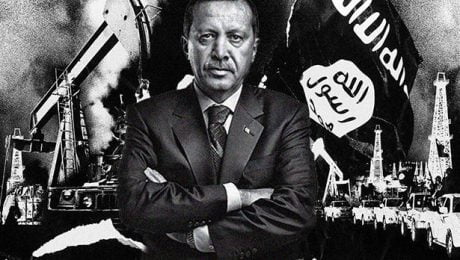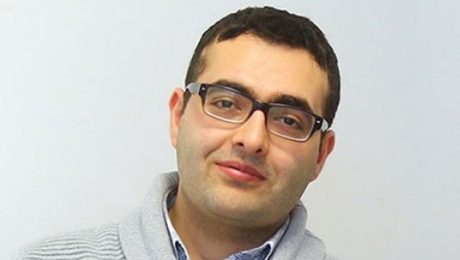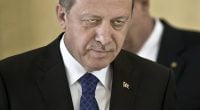Keyword: Turkey

Why Erdogan Is Soft On ISIS
Turkey’s government and the media that support it have an odd attitude when it comes to violent acts carried out by ISIS: It’s as if the “cultural/ideological dialects” of the ruling Justice and Development Party (AKP) government somehow malfunction. The government is politically accountable if ISIS actions do not stop in Turkey. Trying to cover this up with nonsense like “ISIS is the same as PKK and the Gülenists” only increases this accountability.

Monday Talk with Alp Aslandogan on Gulen Movement and Recent Coup Attempt in Turkey
Vocal Europe: What sort of link does Alliance for Shared Values have with the movement in general and with Mr Gulen in particular? Alp Aslandogan: Alliance for Shared Values (AFSV) has six regional partner organizations and AFSV serves as a loose umbrella for these organizations. They focus on interfaith and intercultural dialogue, helping new immigrants […]

The Real Enemy Within Turkey
On the hot evening of August 20 in Gaziantep, Turkey, a still-unidentified person wearing an explosive vest laced with ball bearings navigated a series of narrow alleyways in the city’s Akdere neighborhood. He approached a wedding put on by a Kurdish family from Siirt; they were hosting a Henna night, a traditional ritual where the hands of the bride-to-be are tattooed with temporary ink. At 10:50 pm, the young man’s bomb exploded, killing 54 people. At least 31 were under the age of 18.

Don’t lose the plot
Turkey’s attempted coup shocked an already tense society. At least 240 people were killed, and the country narrowly averted a disastrous military takeover. The plot was led in part by followers of the Gulen movement, a secretive Muslim sect that runs a global network of schools, charities and businesses and has infiltrated the Turkish state. It is only natural that Turks should be determined to identify and punish the conspirators.

GYV president Usak passes away in exile
A renowned intellectual, journalist and president of the Journalists’ and Writers’ Foundation (GYV) Cemal Usak, who was among the targets of the Turkish government’s ongoing crackdown on the faith based Gulen movement, has passed away at the age of 63 while in exile. Usak had been receiving cancer treatment for the past several years. Reportedly, he was told he would die in prison if he comes to Turkey.

Turks Should Question The Official Narrative That Gulen Was Behind The Coup
I am not trying to absolve one side or the other. The coup attempt was a heinous assault on Turkey’s civilian politics and the plotters must be punished in a fashion that deters similar actions in the future. What I am trying to understand is why everyone agrees that Gulenists did it when there is little evidence and that is even questionable.

Turkey detainees tortured, raped after failed coup, rights group says
JASON HANNA and TIM HUME Captured military officers raped by police, hundreds of soldiers beaten, some detainees denied food and water and access to lawyers for days. These are the grim conditions that many of the thousands who were arrested in Turkey face in the aftermath of a recent failed coup, witnesses tell Amnesty International. […]

Turkey Concedes: No Evidence Linking Gulen to Coup Sent to Washington
Turkey is conceding it has not sent any evidence to Washington linking Fethullah Gulen to the failed July 15 coup attempt, despite increasingly angry calls by Ankara for the United States to extradite the Pennsylvania-based cleric or suffer a severe downgrade in diplomatic relations.

Turkey introduces new decree law to seize all Gulen-related companies
Thanks to a new decree law released as part of the state of emergency declared late on July 20 following a failed coup, Turkey’s government is now set to seize all the Turkish companies owned by businessmen somehow linked to the US-based Islamic Scholar Fethullah Gülen.

What Erdogan and Khomeini Have in Common
The Turkish secular elite who have long feared an Iranian-style theocracy in their own country may finally be seeing the worst of their fears come true. The widespread purges under President Recep Tayyip Erdogan following last month’s failed coup attempt against his government suggest the Turkish state is moving toward authoritarian Islamist rule of the sort that Iran introduced in 1979.

India must understand Erdogan’s ideological motives for seeking extradition of Gülenists
Since its inception in India, Hizmet is known for its peace activism, interfaith dialogue and counter-extremism. Operating in the country through interfaith dialogue centres, educational institutions and cultural associations, it is articulating an evolving narrative of peace, pluralism and non-violence based on the spiritual ideas and principles of Gülen’s progressive and dialogic narrative of Sufism, as this research paper also elaborates.





















